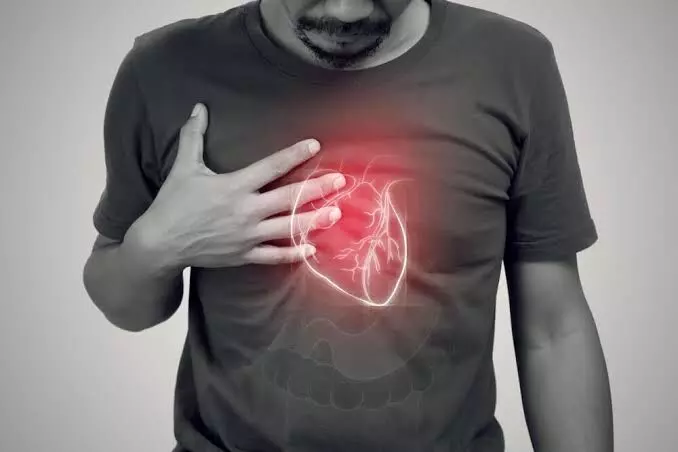STAR Hospitals launches dedicated Heart Failure Clinic in Hyderabad
India currently has an estimated 8–10 million people living with heart failure
By Newsmeter Network
Representational Image
Hyderabad: STAR Hospitals has launched a dedicated Heart Failure Clinic in Hyderabad, aiming to improve early diagnosis, treatment adherence, and long-term care.
The clinic is designed to serve not just Telangana and Andhra Pradesh, but patients from across India.
India currently has an estimated 8–10 million people living with heart failure, with nearly 1.8 million new cases diagnosed each year. Despite this growing burden, only 25–47% of patients receive therapies recommended by clinical guidelines, leaving a significant gap in treatment and survival outcomes.
A Structured, Multi-disciplinary Approach
The STAR Heart Failure Clinic will offer an integrated model of care focused on reducing hospital readmissions and mortality through:
• Risk assessment and diagnostic evaluation
• Guideline-Directed Medical Therapy (GDMT)
• Daycare infusion therapy and cardiac rehabilitation
• Lifestyle counselling and support
• Evaluation for advanced interventions like Heart Transplant and Left Ventricular Assist Devices (LVADs)
• Long-term follow-up care
“India’s heart failure landscape is far more complex and urgent than many realize,” said Dr. Gopichand Mannam, Managing Director, STAR Hospitals Group.
“Unlike the West, where patients typically present in their 70s, we’re seeing Indians with heart failure nearly a decade earlier, often in their 50s and 60s at the peak of their working lives. Nearly 70% of these patients are men, many of them family breadwinners.”
Cardiovascular Crisis in Telugu States
Data from Telangana and Andhra Pradesh underscores the regional urgency of the issue.
“Health insurance claims for cardiac disease have risen sharply—from 9–12% in 2020 to 18–20% in 2024,” said Dr. Ramesh Gudapati, Joint Managing Director, STAR Hospitals Group.
“Today, between 30 to 40% of urban adults are either hypertensive or prehypertensive, and obesity affects nearly half of all women aged 15 to 49. Combine this with rising workplace stress and sedentary lifestyles, especially in Hyderabad’s IT corridors, and the crisis becomes undeniable.”
Early Diagnosis is Critical
According to Dr. Jagadeesh Babu Karusala, Senior Consultant Cardiac Electrophysiologist and Interventional Cardiologist, heart failure exists in various forms, systolic, diastolic, and congestive, and requires precise diagnosis for effective treatment.
“The key insight from clinical practice is simple: early detection saves lives and preserves quality of life,” he said.
“When identified early, patients can begin therapy and make lifestyle changes before permanent damage sets in. Timely diagnosis is the gateway to interventions that reduce hospitalisations and improve long-term outcomes.”
Heart Transplant: The Last Resort, But a Powerful One
For patients with end-stage heart failure, heart transplant remains a critical treatment, although access remains limited.
“In India, we perform only 90–100 heart transplants annually, but more than 50,000 patients need them,” said Dr. Suresh Yerra, Consultant – Advanced Heart Failure & Transplant Cardiologist at STAR Hospitals.
“One-year survival post-transplant is around 90%, and most patients return to work within 3 to 6 months. Many go on to resume full, active lives. For those who receive it, the transplant can be life-restoring.”
A Platform for Change
During the clinic’s inauguration, heart transplant survivors and patients managing chronic heart failure shared their personal experiences of resilience and recovery. Their stories reinforced the need for structured, long-term care that can change not only clinical outcomes but entire lives.
STAR Hospitals’ Heart Failure Clinic plans to extend its impact through public education, community screenings, and early intervention programs, creating a sustainable model to address one of India’s most pressing health challenges.